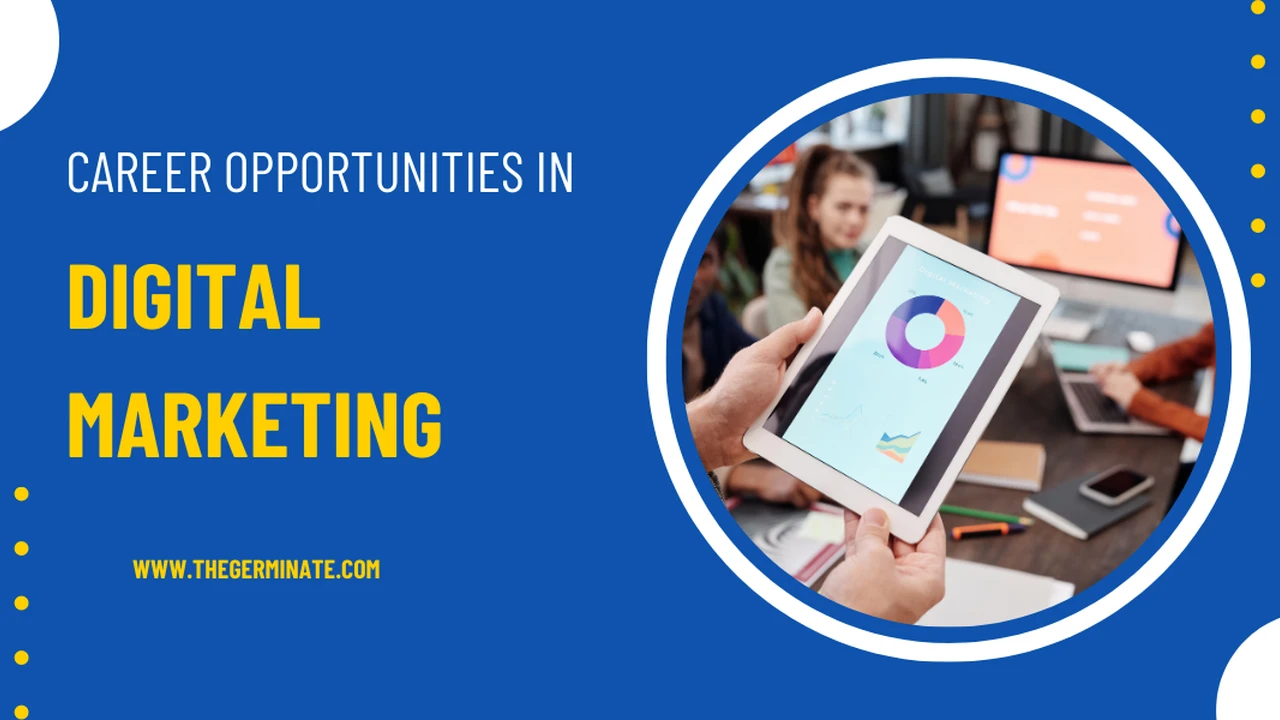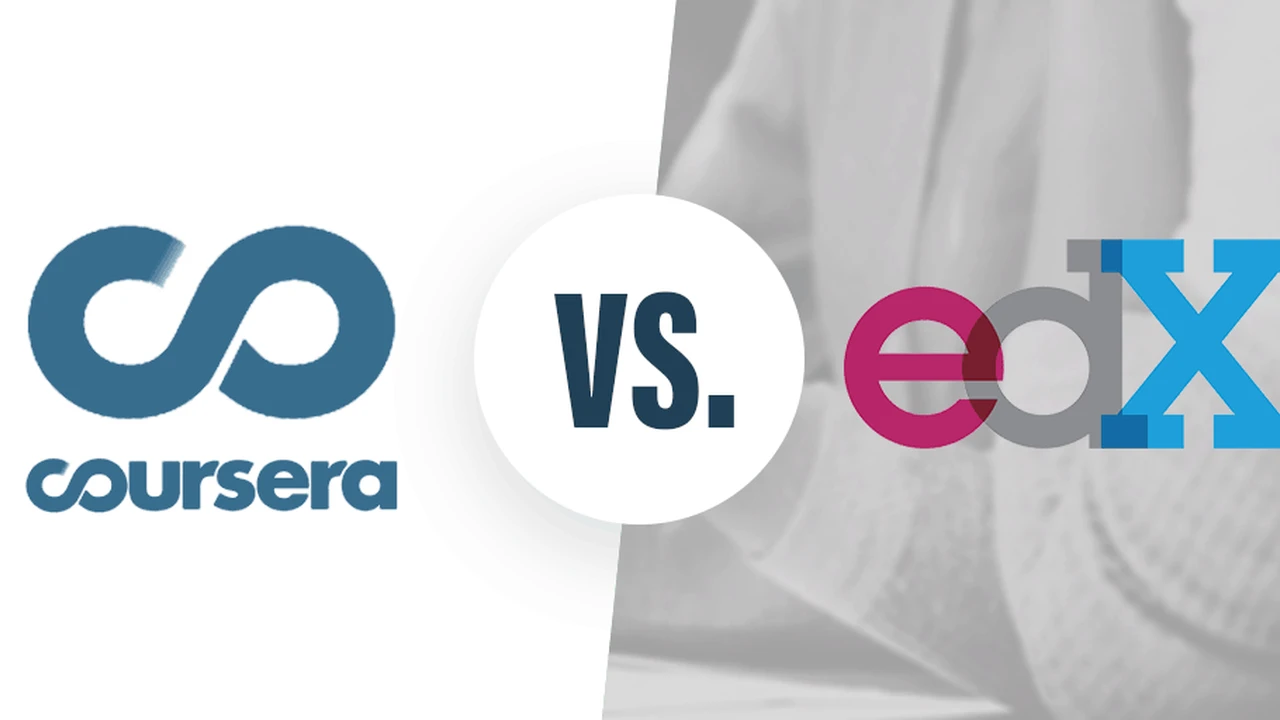Career Opportunities with an Online Marketing Degree
Explore the vast career opportunities available with an online marketing degree. Boost your digital marketing career.

Explore the vast career opportunities available with an online marketing degree. Boost your digital marketing career.
Career Opportunities with an Online Marketing Degree
So, you're thinking about diving into the world of online marketing, or maybe you've already got an online marketing degree under your belt and you're wondering, 'What's next?' You've come to the right place! The digital landscape is booming, and with it, the demand for skilled marketing professionals who understand the nuances of online strategies. An online marketing degree isn't just a piece of paper; it's a passport to a dynamic, ever-evolving field with a plethora of exciting career paths. Whether you're fresh out of high school, looking for a career change, or aiming to upskill, the opportunities are truly vast, especially in thriving markets like the US and Southeast Asia.
Let's break down some of the most sought-after roles, what they entail, and how your online marketing degree can give you a significant edge. We'll also look at some practical tools and platforms that are essential in these roles, comparing them to help you make informed decisions about your future.
Digital Marketing Specialist Roles and Responsibilities
The 'Digital Marketing Specialist' is often a catch-all term, but it's a fantastic starting point for many. This role typically involves a broad range of tasks, touching on various aspects of online marketing. You might be managing social media campaigns one day, optimizing website content for search engines the next, and analyzing campaign performance the day after. It's a role that requires versatility and a solid understanding of the entire digital ecosystem.
Key Responsibilities of a Digital Marketing Specialist:
- Developing and implementing digital marketing strategies.
- Managing social media platforms and content.
- Creating and optimizing website content (SEO).
- Running email marketing campaigns.
- Analyzing campaign data and reporting on performance.
- Collaborating with sales and product teams.
An online marketing degree provides you with the foundational knowledge across all these areas, making you a valuable asset to any company looking to expand its online presence. You'll learn about consumer behavior, market research, branding, and the technical aspects of digital platforms.
Social Media Marketing Manager Building Online Communities
If you love connecting with people and crafting engaging narratives, a career as a Social Media Marketing Manager might be your calling. This role is all about building and nurturing online communities, driving brand awareness, and generating leads through various social media channels. It's not just about posting pretty pictures; it's about strategy, analytics, and understanding the ever-changing algorithms.
Essential Skills for Social Media Marketing:
- Content creation (text, image, video).
- Community management and engagement.
- Social media advertising (paid campaigns).
- Analytics and reporting.
- Crisis management.
Your online marketing degree will equip you with the strategic thinking needed to develop effective social media campaigns, understand target audiences, and measure ROI. You'll learn about different platforms, their unique features, and how to tailor content for maximum impact.
Recommended Social Media Management Tools:
Hootsuite
Description: Hootsuite is a comprehensive social media management platform that allows you to manage multiple social media profiles from a single dashboard. You can schedule posts, monitor conversations, track performance, and collaborate with your team. It supports major platforms like Facebook, Instagram, Twitter, LinkedIn, and YouTube.
Use Case: Ideal for businesses and agencies managing a significant social media presence across various platforms. It's great for scheduling content in advance, monitoring brand mentions, and analyzing engagement.
Pricing: Hootsuite offers various plans. The Professional plan starts at around $49/month (billed annually) for 1 user and 10 social accounts. The Team plan is around $179/month for 3 users and 20 social accounts. Enterprise solutions are custom-quoted.
Comparison: Hootsuite is known for its robust analytics and team collaboration features. It's a more enterprise-level solution compared to some simpler tools, offering deeper insights and more extensive integrations.
Buffer
Description: Buffer is another popular social media management tool focusing on scheduling, publishing, and analytics. It's known for its user-friendly interface and emphasis on content planning and distribution.
Use Case: Excellent for small to medium-sized businesses and individual marketers who need to efficiently schedule posts and analyze basic performance metrics. It's particularly good for maintaining a consistent posting schedule.
Pricing: Buffer offers a free plan for up to 3 social accounts and 10 scheduled posts. Paid plans start at around $6/month per social channel (billed annually) for publishing and analytics features. The Team plan starts at $12/month per social channel.
Comparison: Buffer is often praised for its simplicity and ease of use. While it might not have all the advanced features of Hootsuite, it's a strong contender for those who prioritize straightforward scheduling and analytics without overwhelming complexity.
Sprout Social
Description: Sprout Social is an all-in-one social media management platform that combines publishing, engagement, analytics, and listening tools. It's designed for businesses that need a comprehensive solution for their social media strategy.
Use Case: Best suited for larger organizations and agencies that require advanced features like social listening, CRM integrations, and in-depth reporting. It helps in understanding audience sentiment and competitive analysis.
Pricing: Sprout Social is on the higher end. The Standard plan starts at $249/month (billed annually) for 5 social profiles. The Professional plan is $399/month, and the Advanced plan is $499/month. They offer a 30-day free trial.
Comparison: Sprout Social stands out with its powerful social listening capabilities and robust reporting. It's a more premium option, offering deeper insights into brand perception and customer service interactions, making it ideal for brands with complex social media needs.
Search Engine Optimization SEO Specialist Driving Organic Traffic
In the digital world, if you're not on the first page of Google, you might as well not exist. That's where an SEO Specialist comes in. This role is crucial for ensuring that websites rank high in search engine results, driving organic (unpaid) traffic. It involves a blend of technical know-how, content strategy, and analytical skills.
Core Areas of SEO:
- Keyword research and analysis.
- On-page SEO (content optimization, meta tags).
- Technical SEO (site speed, mobile-friendliness, crawlability).
- Off-page SEO (link building, local SEO).
- Performance monitoring and reporting.
An online marketing degree will introduce you to the principles of SEO, teaching you how search engines work, how to identify valuable keywords, and how to optimize website elements. This knowledge is invaluable for any business operating online.
Recommended SEO Tools:
Semrush
Description: Semrush is a leading all-in-one SEO and digital marketing toolkit. It offers extensive features for keyword research, competitor analysis, site auditing, backlink analysis, content marketing, and PPC research.
Use Case: Essential for SEO specialists, content marketers, and digital agencies. It helps in identifying profitable keywords, analyzing competitor strategies, finding technical SEO issues, and tracking ranking performance.
Pricing: Semrush offers a free account with limited features. Paid plans start with the Pro plan at $129.95/month (billed annually) or $144.95/month (monthly). The Guru plan is $249.95/month, and the Business plan is $499.95/month.
Comparison: Semrush is incredibly comprehensive, often considered the industry standard. Its strength lies in its vast database and ability to provide insights across multiple digital marketing facets, not just SEO. It's more powerful for competitive analysis than many other tools.
Ahrefs
Description: Ahrefs is another powerhouse in the SEO world, particularly renowned for its backlink analysis and keyword research capabilities. It provides tools for site audit, rank tracking, and content exploration.
Use Case: Highly valued by SEO professionals for in-depth backlink analysis, finding link-building opportunities, and comprehensive keyword research. It's also great for content gap analysis and monitoring competitor backlinks.
Pricing: Ahrefs does not offer a free plan, but they have a 7-day trial for $7. The Lite plan starts at $99/month (billed annually) or $129/month (monthly). The Standard plan is $179/month, and the Advanced plan is $399/month.
Comparison: Ahrefs is often compared directly with Semrush. While both are excellent, Ahrefs is frequently cited as having a slight edge in backlink data and analysis. Its user interface is also very intuitive for many SEOs. If link building is a primary focus, Ahrefs often comes out on top.
Google Search Console
Description: Google Search Console (GSC) is a free web service by Google that helps website owners monitor their site's performance in Google Search results. It provides data on search queries, indexing status, crawl errors, and mobile usability.
Use Case: Absolutely essential for any website owner or SEO specialist. It's the direct line to Google, providing critical information on how Google views your site, identifying issues that prevent proper indexing, and showing which queries bring users to your site.
Pricing: Free.
Comparison: GSC is unique because it's directly from Google. While it doesn't offer the competitive analysis or extensive keyword research of paid tools, it provides invaluable first-party data on your site's organic performance and health from Google's perspective. It's a must-have complement to any paid SEO tool.
Content Marketing Strategist Crafting Engaging Narratives
Content is king, or so the saying goes, and a Content Marketing Strategist is the one who wears the crown. This role focuses on planning, creating, and distributing valuable, relevant, and consistent content to attract and retain a clearly defined audience. It's about telling your brand's story in a way that resonates with your target market.
Key Aspects of Content Marketing:
- Content strategy development.
- Content creation (blog posts, articles, videos, infographics, podcasts).
- Content distribution and promotion.
- Content performance analysis.
- Audience research and persona development.
An online marketing degree will teach you how to conduct thorough audience research, develop compelling brand narratives, and understand the different content formats that work best for various platforms and objectives. You'll also learn how to integrate content with SEO and social media strategies.
Recommended Content Marketing Tools:
Surfer SEO
Description: Surfer SEO is a content optimization tool that helps you write content that ranks higher on Google. It analyzes top-ranking pages for your target keyword and provides data-driven recommendations for content length, keywords to include, headings, and more.
Use Case: Ideal for content writers, SEOs, and content strategists who want to create highly optimized articles and blog posts. It helps ensure your content covers all relevant topics and keywords that search engines expect.
Pricing: Surfer SEO offers various plans. The Basic plan starts at $69/month (billed annually) or $89/month (monthly) for 10 content editors and 20 audits. The Pro plan is $129/month, and the Business plan is $259/month.
Comparison: Surfer SEO is highly focused on on-page SEO and content optimization. It's excellent for taking existing content or new drafts and fine-tuning them for search engine visibility. It's more prescriptive than general SEO tools, giving specific recommendations for content creation.
Jasper AI (formerly Jarvis)
Description: Jasper AI is an artificial intelligence writing assistant that helps generate high-quality content quickly. It can assist with blog posts, social media captions, ad copy, website content, and more, using various templates and AI models.
Use Case: Beneficial for content creators, marketers, and small business owners who need to produce a large volume of content efficiently. It can help overcome writer's block and generate ideas for different content formats.
Pricing: Jasper offers a Creator plan starting at $39/month (billed annually) or $49/month (monthly) for one user. The Teams plan starts at $99/month. They offer a 7-day free trial.
Comparison: Jasper AI is a leader in AI content generation. While it won't replace human creativity entirely, it's a powerful tool for speeding up the content creation process and generating diverse content types. It's particularly strong for generating marketing copy and short-form content.
Canva
Description: Canva is a graphic design platform that allows users to create professional-looking visuals without extensive design experience. It offers a vast library of templates for social media posts, infographics, presentations, and more.
Use Case: Indispensable for content marketers, social media managers, and small businesses that need to create engaging visual content quickly and affordably. It's perfect for designing eye-catching images for blogs, social media, and email campaigns.
Pricing: Canva offers a robust free plan with many features. Canva Pro starts at $119.99/year or $14.99/month for one person, offering access to premium templates, stock photos, and advanced features like background remover.
Comparison: Canva democratized graphic design. While not a writing tool, it's crucial for content marketing as visuals are key to engagement. It's far more accessible and user-friendly than professional design software like Adobe Photoshop, making it ideal for marketers who aren't full-time designers.
Email Marketing Specialist Nurturing Leads and Customers
Email marketing might seem old-school to some, but it remains one of the most effective digital marketing channels for nurturing leads, building customer loyalty, and driving sales. An Email Marketing Specialist is responsible for crafting compelling email campaigns, managing subscriber lists, and analyzing campaign performance.
Key Responsibilities in Email Marketing:
- Developing email marketing strategies.
- Creating engaging email content and designs.
- Managing email lists and segmentation.
- A/B testing campaigns for optimization.
- Analyzing email performance metrics (open rates, click-through rates, conversions).
- Ensuring compliance with email regulations (GDPR, CAN-SPAM).
Your online marketing degree will cover customer relationship management (CRM) principles, copywriting for conversions, and data analysis, all of which are vital for successful email marketing. You'll learn how to build effective funnels and personalize communication.
Recommended Email Marketing Platforms:
Mailchimp
Description: Mailchimp is a popular all-in-one marketing platform, primarily known for its email marketing services. It offers tools for email campaign creation, audience management, automation, and basic reporting. It's particularly user-friendly for beginners.
Use Case: Excellent for small businesses, startups, and individual entrepreneurs who are new to email marketing. It's great for sending newsletters, promotional emails, and setting up basic automation sequences.
Pricing: Mailchimp offers a free plan for up to 500 contacts and 1,000 sends per month. Paid plans start with the Essentials plan at $13/month for 500 contacts, offering more features and higher send limits. Pricing scales with the number of contacts.
Comparison: Mailchimp is celebrated for its ease of use and intuitive drag-and-drop email builder. While it has expanded into a broader marketing platform, its core strength remains email. It's a great entry-level tool that can grow with your business, though its advanced automation might be less sophisticated than dedicated CRM platforms.
ActiveCampaign
Description: ActiveCampaign is a powerful customer experience automation (CXA) platform that combines email marketing, marketing automation, and CRM functionalities. It's known for its advanced automation capabilities and deep segmentation options.
Use Case: Ideal for businesses that need sophisticated marketing automation, personalized customer journeys, and integrated CRM. It's perfect for e-commerce, SaaS, and businesses with complex sales funnels.
Pricing: ActiveCampaign offers various plans based on the number of contacts. The Lite plan starts at $29/month (billed annually) for 1,000 contacts. The Plus plan is $49/month, and the Professional plan is $149/month. They offer a 14-day free trial.
Comparison: ActiveCampaign is a step up from basic email marketing tools, offering much more robust automation and CRM integration. It allows for highly personalized and dynamic email campaigns based on user behavior, making it a strong choice for businesses focused on customer lifecycle management and advanced segmentation.
Constant Contact
Description: Constant Contact is an email marketing service provider that focuses on ease of use for small businesses and non-profits. It offers email templates, contact management, reporting, and event marketing tools.
Use Case: Best for small businesses and organizations that need a straightforward email marketing solution with good customer support. It's particularly strong for event promotions and simple newsletter campaigns.
Pricing: Constant Contact offers a free trial for 14 days. The Core plan starts at $12/month for 500 contacts, and the Plus plan starts at $45/month. Pricing scales with the number of contacts.
Comparison: Constant Contact is very similar to Mailchimp in its target audience and ease of use. It often gets high marks for its customer support and event management features. While it might not have the deep automation of ActiveCampaign, it's a reliable and user-friendly option for businesses that prioritize simplicity and support.
Paid Media Specialist Maximizing Ad Spend ROI
Paid media, also known as paid advertising or PPC (Pay-Per-Click), is about strategically spending money to get your message in front of the right audience. A Paid Media Specialist manages advertising campaigns across platforms like Google Ads, social media ads (Facebook, Instagram, LinkedIn), and display networks. Their goal is to maximize return on ad spend (ROAS).
Key Responsibilities of a Paid Media Specialist:
- Developing paid advertising strategies.
- Keyword research for PPC campaigns.
- Ad copy creation and optimization.
- Campaign setup, bidding, and budget management.
- A/B testing ad creatives and landing pages.
- Performance analysis and optimization.
An online marketing degree will provide you with a strong understanding of advertising principles, audience targeting, and analytics. You'll learn how to allocate budgets effectively, interpret campaign data, and continuously optimize for better results.
Recommended Paid Media Platforms and Tools:
Google Ads
Description: Google Ads (formerly Google AdWords) is Google's online advertising platform where advertisers bid to display brief advertisements, service offerings, product listings, or videos to web users. It's the largest and most widely used paid search platform.
Use Case: Essential for any business looking to reach customers actively searching for their products or services. It's crucial for driving immediate traffic, generating leads, and increasing sales through search, display, and video ads.
Pricing: Google Ads operates on a pay-per-click (PPC) model, so you only pay when someone clicks on your ad. The cost per click (CPC) varies widely based on industry, keywords, and competition. There's no fixed monthly fee for the platform itself, only for your ad spend.
Comparison: Google Ads is unparalleled for reaching users with high commercial intent. Its vast network and sophisticated targeting options make it a cornerstone of most paid media strategies. While complex, its potential for ROI is immense when managed effectively.
Facebook Ads Manager
Description: Facebook Ads Manager is the primary tool for creating, managing, and analyzing advertising campaigns across Facebook, Instagram, Messenger, and Audience Network. It offers powerful targeting capabilities based on demographics, interests, and behaviors.
Use Case: Ideal for businesses looking to build brand awareness, generate leads, drive website traffic, and increase sales through social media. It's particularly effective for reaching specific audience segments with highly visual and engaging content.
Pricing: Similar to Google Ads, Facebook Ads Manager operates on an auction-based system where you set your budget and bid for ad placements. You pay for impressions, clicks, or conversions, depending on your campaign objective. There's no platform fee, only ad spend.
Comparison: Facebook Ads Manager excels at audience targeting and visual advertising. While Google Ads captures demand, Facebook Ads can create demand by exposing users to products and services they might not have been actively searching for. Its retargeting capabilities are also incredibly powerful.
AdRoll
Description: AdRoll is an e-commerce marketing platform that specializes in retargeting and cross-channel advertising. It helps businesses reach customers who have previously interacted with their website or app across various platforms.
Use Case: Perfect for e-commerce businesses and any company looking to re-engage website visitors who didn't convert on their first visit. It's highly effective for increasing conversion rates and reminding potential customers about your offerings.
Pricing: AdRoll offers a free plan for basic retargeting. Paid plans vary based on ad spend and features, typically starting around $9/month for their Growth plan, which includes email and retargeting. Larger ad spends will incur higher costs.
Comparison: AdRoll's strength lies in its dedicated focus on retargeting and its ability to serve ads across a wide network of sites and apps. While Google and Facebook also offer retargeting, AdRoll provides a specialized platform that can simplify and optimize these efforts, often leading to higher conversion rates for specific use cases.
Marketing Analyst Data Driven Insights
For those who love numbers and uncovering insights, a Marketing Analyst role is a perfect fit. This position involves collecting, analyzing, and interpreting marketing data to identify trends, measure campaign effectiveness, and inform future strategies. It's about turning raw data into actionable intelligence.
Key Skills for Marketing Analysts:
- Data collection and cleaning.
- Statistical analysis.
- Data visualization and reporting.
- Proficiency in analytics tools.
- Understanding of marketing KPIs (Key Performance Indicators).
An online marketing degree will provide you with a solid foundation in marketing metrics, research methodologies, and the use of analytical tools. You'll learn how to ask the right questions, interpret complex data sets, and present your findings in a clear and compelling way.
Recommended Analytics Tools:
Google Analytics 4 GA4
Description: Google Analytics 4 (GA4) is the latest version of Google's web analytics service. It provides a unified view of user behavior across websites and apps, focusing on events rather than sessions. It offers advanced machine learning capabilities for predictive insights.
Use Case: Absolutely essential for any business with an online presence. It helps track website traffic, user engagement, conversion paths, and overall digital performance. GA4 is particularly strong for understanding the customer journey across different touchpoints.
Pricing: Free.
Comparison: GA4 is the industry standard for web analytics. While it has a steeper learning curve than its predecessor (Universal Analytics), its event-driven model and predictive capabilities offer deeper insights into user behavior and future trends. It's a must-have for data-driven marketing decisions.
Tableau
Description: Tableau is a powerful data visualization tool that allows users to create interactive dashboards and reports from various data sources. It's known for its ability to transform complex data into easily understandable visual formats.
Use Case: Ideal for marketing analysts, data scientists, and business intelligence professionals who need to explore large datasets and present their findings visually. It's excellent for creating custom reports and dashboards that track key marketing metrics.
Pricing: Tableau offers various products. Tableau Desktop starts at $70/user/month (billed annually). Tableau Public is a free version for sharing public visualizations. They offer a free trial for their paid products.
Comparison: Tableau is a professional-grade data visualization tool. While GA4 provides the raw data, Tableau helps you make sense of it and present it compellingly. It's more flexible and powerful for custom reporting and deep-dive analysis than the built-in reporting of most marketing platforms.
Microsoft Excel
Description: Microsoft Excel is a spreadsheet program widely used for data organization, calculation, and basic analysis. It's a fundamental tool for almost any role involving data.
Use Case: Essential for every marketing professional, regardless of their specific role. It's used for organizing campaign data, performing quick calculations, creating simple charts, and preparing data for import into other tools. It's also great for budget tracking and project management.
Pricing: Excel is part of Microsoft 365, which typically costs around $6.99/month for a personal subscription or $9.99/month for a family subscription. Many businesses provide it as part of their software suite.
Comparison: While not a dedicated analytics platform, Excel is the workhorse of data manipulation. It's more versatile for ad-hoc analysis and data cleaning than specialized tools, and its ubiquity means almost everyone knows how to use it. It often serves as the bridge between raw data and more advanced visualization tools.
E-commerce Marketing Manager Driving Online Sales
With the explosion of online shopping, the E-commerce Marketing Manager has become a pivotal role. This professional is responsible for driving traffic to online stores, optimizing conversion rates, and ultimately increasing online sales. It's a highly results-driven position that combines various digital marketing disciplines.
Key Responsibilities in E-commerce Marketing:
- Developing and executing e-commerce marketing strategies.
- Managing product listings and descriptions.
- Running promotional campaigns and sales.
- Optimizing website user experience (UX) for conversions.
- Managing email marketing and retargeting campaigns.
- Analyzing sales data and customer behavior.
An online marketing degree will give you a holistic understanding of the customer journey in an e-commerce context, from initial awareness to post-purchase loyalty. You'll learn about conversion rate optimization (CRO), product merchandising, and the unique challenges and opportunities of selling online.
Recommended E-commerce Marketing Platforms:
Shopify
Description: Shopify is a leading e-commerce platform that allows businesses to create and manage online stores. It provides tools for website building, product management, payment processing, and marketing integrations.
Use Case: Ideal for businesses of all sizes, from small startups to large enterprises, looking to sell products online. It simplifies the process of setting up an e-commerce store and offers a wide range of apps and themes to customize functionality and appearance.
Pricing: Shopify offers various plans. The Basic Shopify plan starts at $29/month. The Shopify plan is $79/month, and the Advanced Shopify plan is $299/month. They offer a 3-day free trial and then $1/month for the first three months on select plans.
Comparison: Shopify is an all-in-one solution for e-commerce. Its strength lies in its ease of use, extensive app store, and robust infrastructure. While it's a platform for selling, its built-in marketing tools and integrations with other marketing services make it a powerful hub for e-commerce marketing.
Klaviyo
Description: Klaviyo is a marketing automation platform specifically designed for e-commerce businesses. It excels at email and SMS marketing, offering deep integrations with e-commerce platforms like Shopify and advanced segmentation based on customer behavior and purchase history.
Use Case: Essential for e-commerce businesses that want to send highly personalized and automated email and SMS campaigns. It's perfect for abandoned cart reminders, post-purchase flows, win-back campaigns, and segmenting customers based on their buying habits.
Pricing: Klaviyo offers a free plan for up to 250 contacts and 500 email sends. Paid plans scale based on the number of contacts and email/SMS sends. For 1,000 contacts, email pricing starts at $45/month. SMS pricing is separate and based on usage.
Comparison: Klaviyo is a specialized e-commerce marketing automation tool. While Mailchimp and ActiveCampaign can do e-commerce, Klaviyo's native integrations and deep understanding of e-commerce data make it exceptionally powerful for driving sales through targeted communication. Its segmentation capabilities are particularly strong for online retailers.
WooCommerce
Description: WooCommerce is a free, open-source e-commerce plugin for WordPress. It allows you to turn any WordPress website into a fully functional online store, offering extensive customization options and a vast ecosystem of extensions.
Use Case: Ideal for businesses that already use WordPress or prefer an open-source solution with maximum flexibility and control. It's great for those who want to integrate their e-commerce store seamlessly with their content marketing efforts on WordPress.
Pricing: The WooCommerce plugin itself is free. However, you'll need to pay for web hosting, a domain name, and potentially premium themes or extensions. Hosting costs can range from $5/month to hundreds, depending on your needs.
Comparison: WooCommerce offers unparalleled flexibility and control, especially for those comfortable with WordPress. While it requires more technical setup than Shopify, its open-source nature means you own your data and have endless customization possibilities. It's a powerful choice for businesses that want a highly tailored e-commerce experience.
The Future is Bright for Online Marketing Graduates
The digital marketing landscape is constantly evolving, but one thing is clear: the demand for skilled professionals is only going to grow. An online marketing degree provides you with a versatile skill set that is applicable across numerous industries and roles. From crafting compelling social media campaigns to optimizing websites for search engines, analyzing complex data, or driving e-commerce sales, the opportunities are truly endless.
The tools we've discussed – Hootsuite, Buffer, Sprout Social for social media; Semrush, Ahrefs, Google Search Console for SEO; Surfer SEO, Jasper AI, Canva for content; Mailchimp, ActiveCampaign, Constant Contact for email; Google Ads, Facebook Ads Manager, AdRoll for paid media; and Google Analytics 4, Tableau, Microsoft Excel for analytics – are just a glimpse into the vast ecosystem of technologies that empower digital marketers. Your online marketing degree will not only teach you the theoretical foundations but also expose you to these practical tools, giving you a significant advantage in the job market.
Whether you're aiming for a specialist role or a broader management position, the skills you gain from an online marketing degree are highly transferable and in high demand. So, if you're passionate about the digital world and eager to make an impact, an online marketing degree is an excellent investment in your future career. Go out there and make your mark!
:max_bytes(150000):strip_icc()/277019-baked-pork-chops-with-cream-of-mushroom-soup-DDMFS-beauty-4x3-BG-7505-5762b731cf30447d9cbbbbbf387beafa.jpg)






